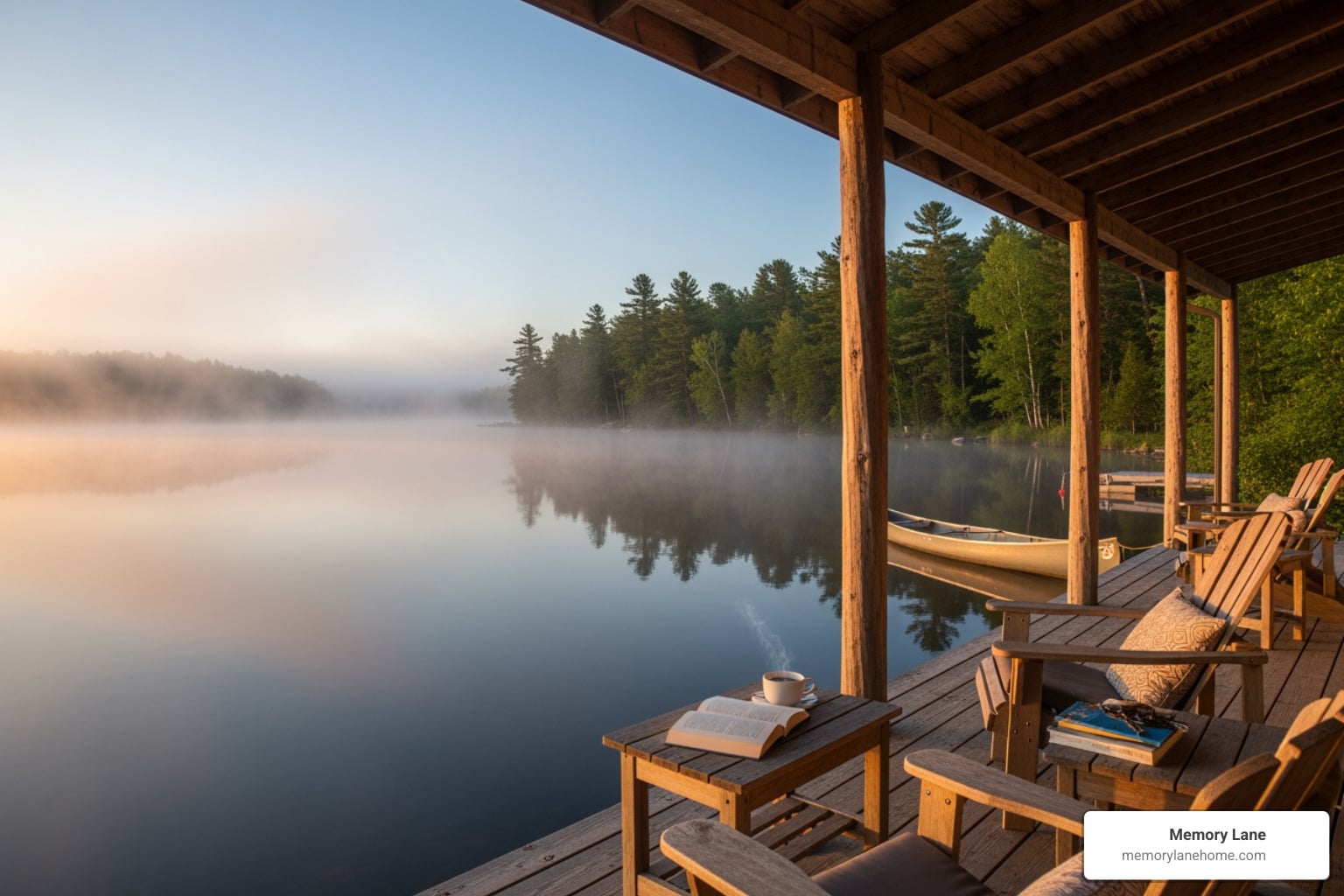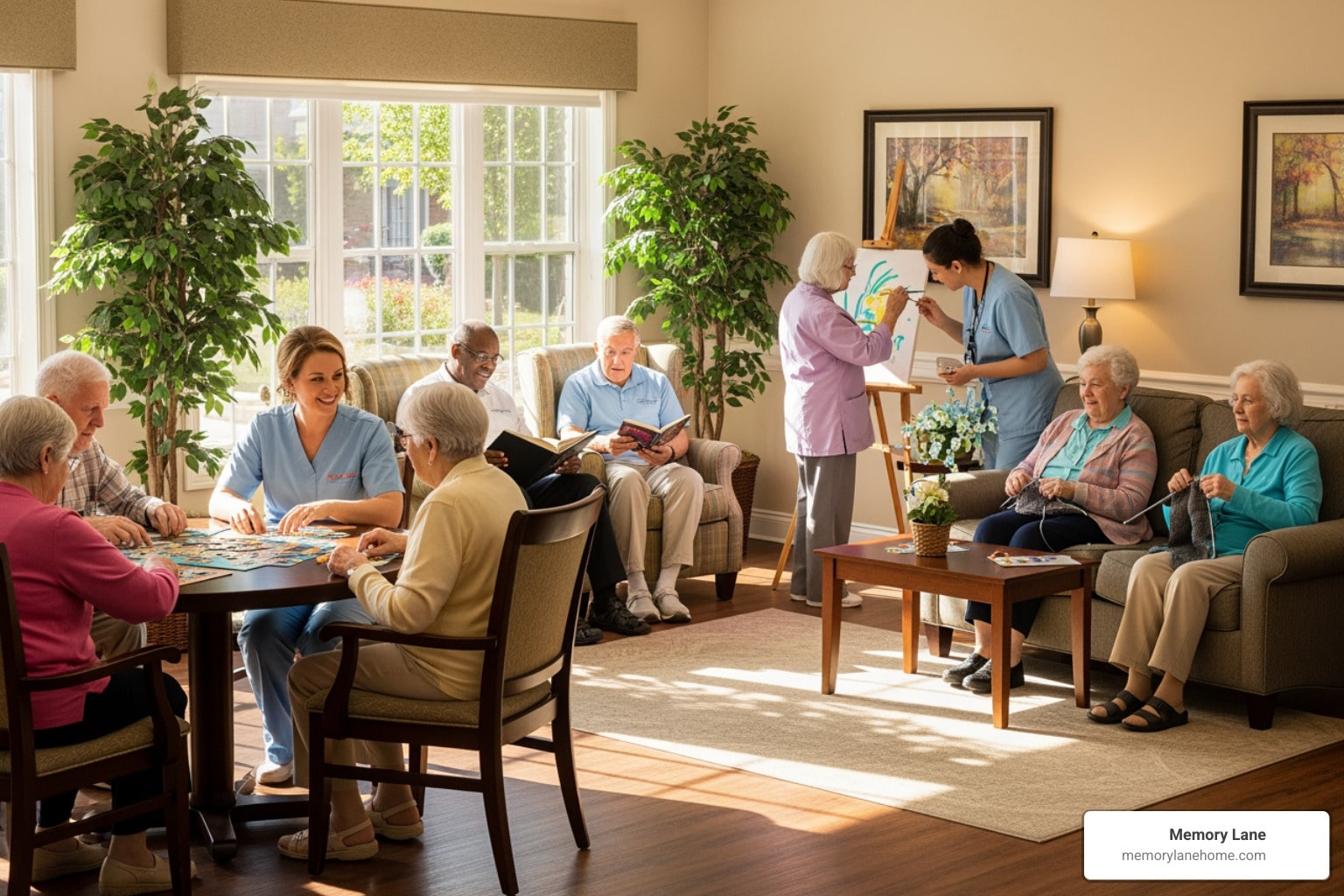Your guide to assisted living Michigan: explore costs, services, financial aid, and top communities for senior care.
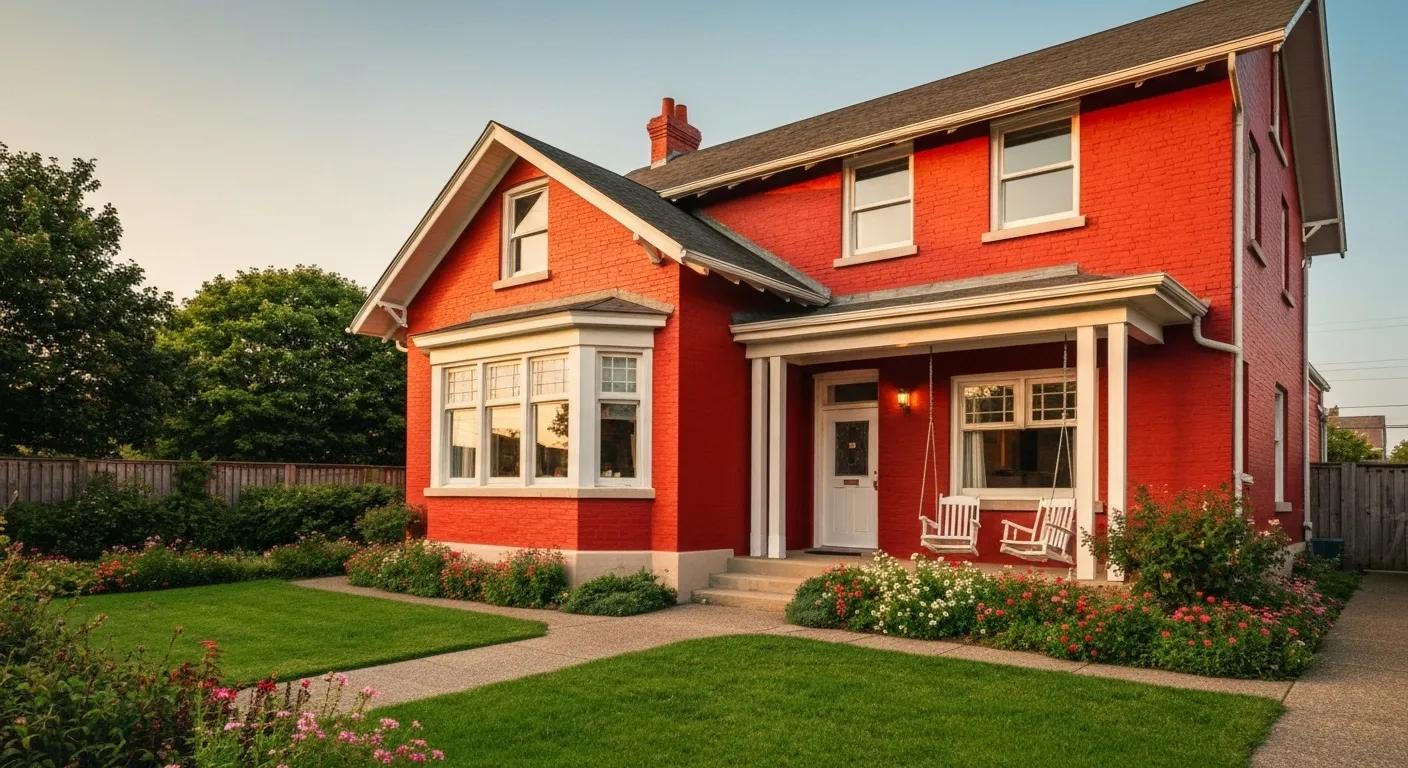
Top Memory Care Facilities in My Area for Seniors’ Needs
Top Memory Care Facilities in My Area for Seniors’ Needs
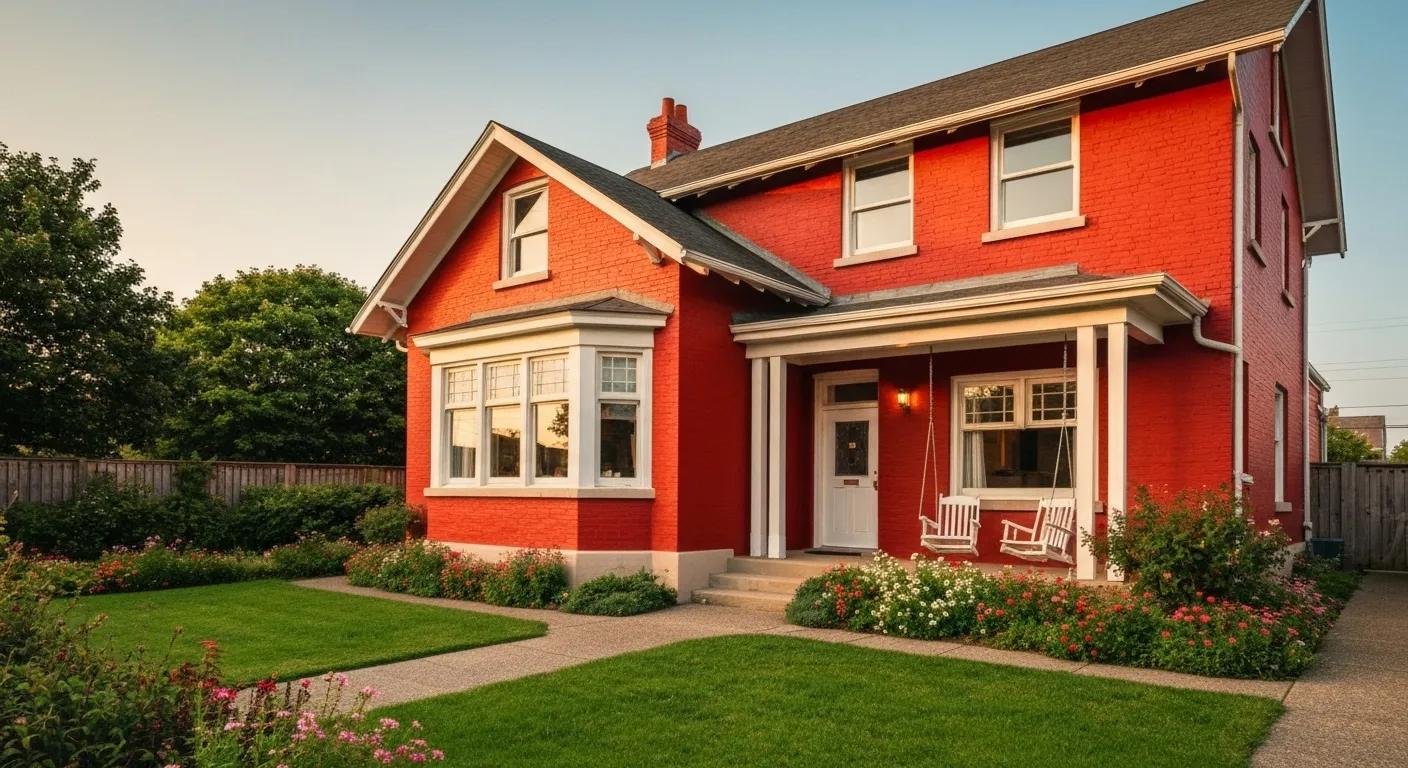
Top Alzheimer’s Memory Care in Ypsilanti & Ann Arbor
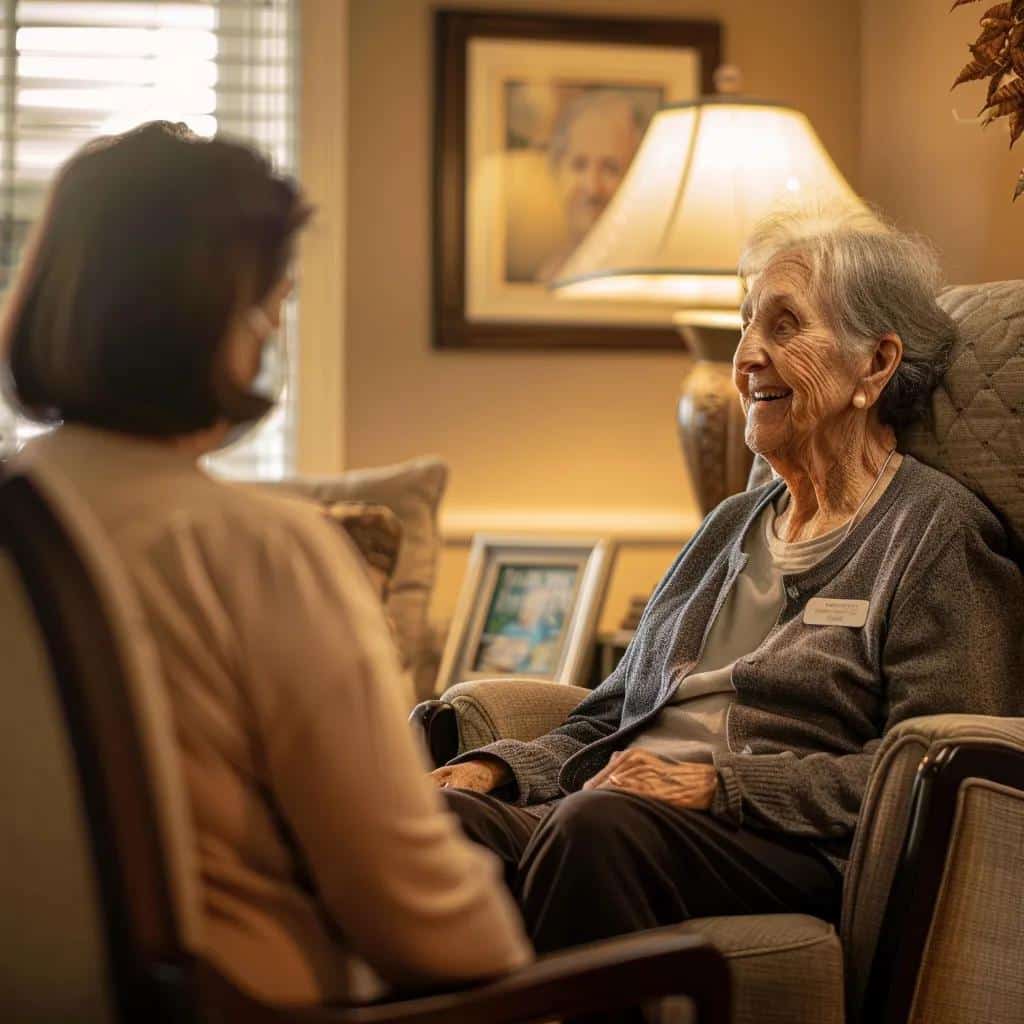
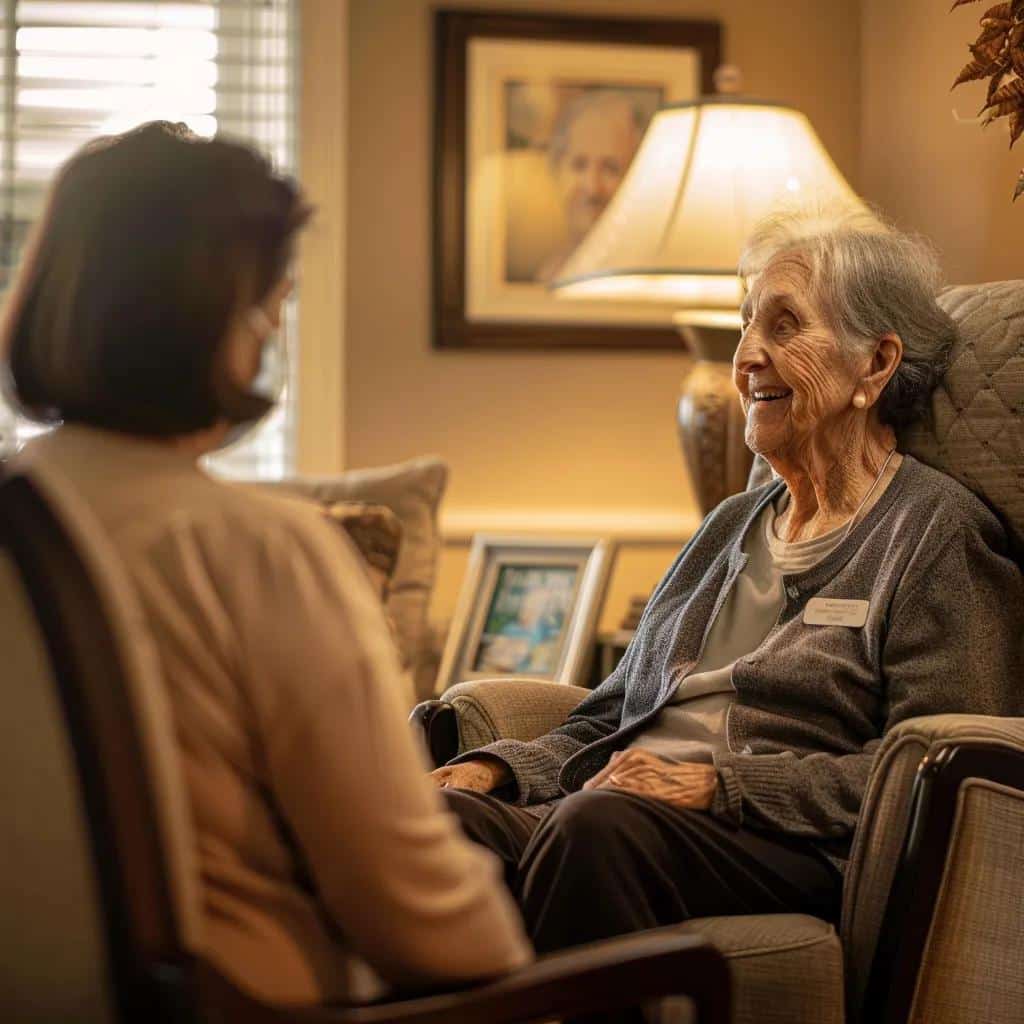
Alzheimer’s disease affects more than 6.7 million Americans over 65, creating urgent demand for specialized memory care facilities in my area that combine expertise with compassion. Families seeking clarity and peace of mind need actionable guidance on memory care services, personalized support plans, local options in Ypsilanti and Ann Arbor, decision criteria, early warning signs, technological innovations, and real experiences. This article defines core memory care concepts, explores tailored Alzheimer’s programs, highlights Memory Lane Home’s home-like six-bedroom residences and high caregiver-to-resident ratios, outlines financial and respite solutions, details safety protocols, and showcases resident and caregiver perspectives. By the end, you will know where to find trusted memory care near you, how to choose the right community, and what to expect from modern dementia support services.
What Are Memory Care Services and Why Are They Essential for Seniors with Alzheimer’s?
Memory care is a specialized subset of assisted living focused on residents with Alzheimer’s disease and other dementias. It combines secure facilities, trained caregivers, structured routines, and therapeutic activities to maintain safety, dignity, and cognitive engagement. Memory care facilities in my area ensure seniors receive consistent supervision, medication management, and personalized interventions that reduce agitation and improve quality of life.
Cognitive decline from Alzheimer’s intensifies risks of wandering, falls, and social isolation. Dedicated memory care environments minimize hazards, structure daily living, and foster familiarity through routine. Understanding these foundational services prepares families to evaluate local options.
What Is Memory Care and How Does It Support Seniors with Dementia?
Memory care is a residential care model designed to support seniors with dementia by providing constant supervision, structured daily activities, and targeted therapies. This approach reduces confusion by establishing consistent schedules and environmental cues that compensate for memory loss. For example, color-coded rooms and simplified signage help residents navigate common areas safely, preserving independence and lowering anxiety. Structured social interaction and cognitive exercises further reinforce recall pathways, directly supporting overall well-being.
How Does Alzheimer’s Disease Affect Memory and Daily Living?
Alzheimer’s disease is a progressive neurodegenerative condition that impairs memory, reasoning, and behavior through beta-amyloid plaque accumulation and tau tangles in the brain. These changes compromise daily tasks such as dressing, meal preparation, and personal hygiene. As short-term memory fades, seniors may struggle to recognize loved ones or recall recent events, increasing frustration and risk of harm. Recognizing this decline underscores the need for environments that adapt routines and provide gentle reminders to maintain safety and self-esteem.
Memory Care and Alzheimer’s Disease
Alzheimer’s disease is a progressive neurodegenerative condition characterized by the accumulation of beta-amyloid plaques and tau tangles in the brain, leading to memory impairment, reasoning difficulties, and behavioral changes. These changes affect daily tasks and increase the risk of harm, highlighting the need for specialized care environments.
This research provides a foundational understanding of the disease process, which is essential for understanding the need for specialized memory care.
What Types of Dementia Require Specialized Memory Care?
Dementia encompasses several conditions beyond Alzheimer’s, each demanding tailored care approaches. Effective memory care homes address unique symptoms and progression patterns.
Below is a comparison of common dementia types and specialized care priorities in memory care settings:
Each subtype demands targeted therapies—from art and music interventions for emotional regulation to gait training for vascular-related motor decline—ensuring residents receive the precise support they need.
How Does Personalized Alzheimer’s Care Improve Quality of Life?
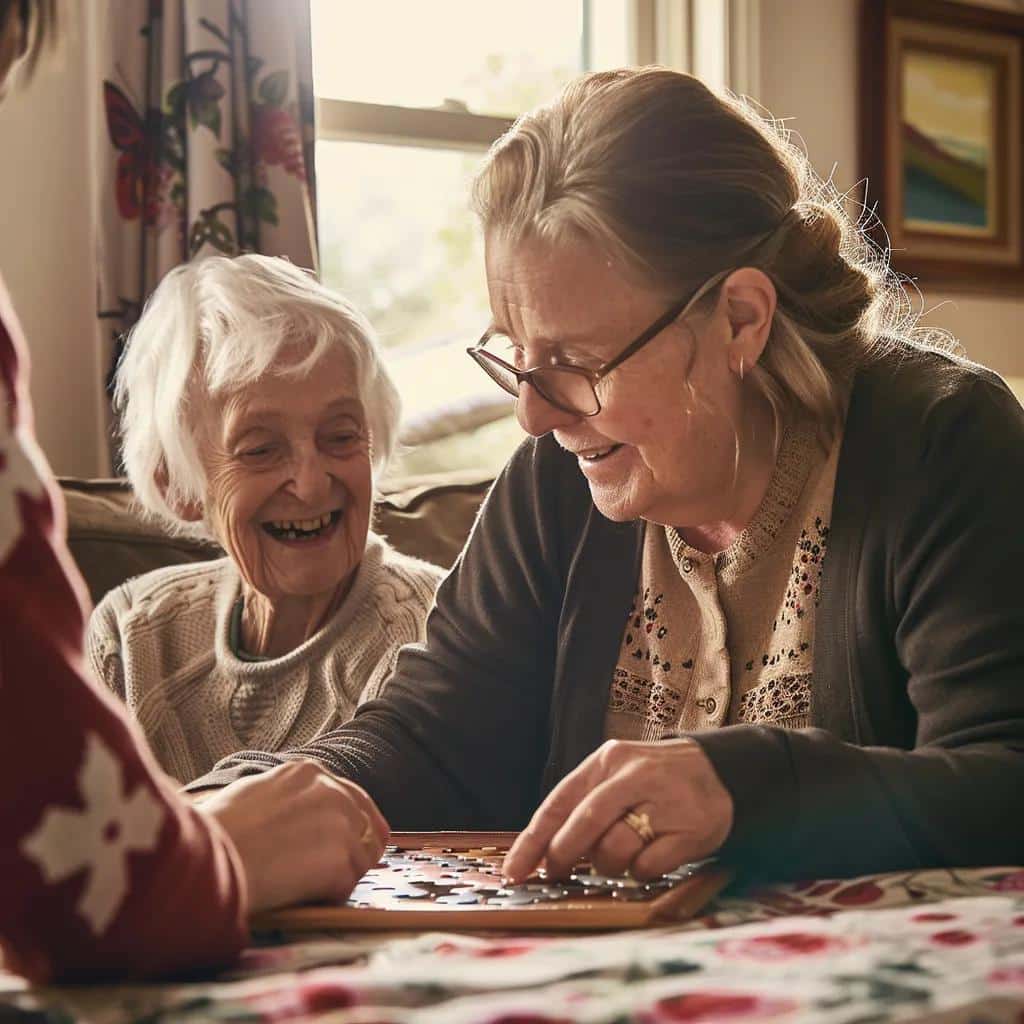
Personalized Alzheimer’s care aligns interventions with each resident’s history, preferences, and stage of dementia. This individualized approach fosters trust, reduces behavioral challenges, and preserves identity.
Personalized Care and Quality of Life
Personalized Alzheimer’s care involves tailoring interventions to each resident’s history, preferences, and stage of dementia. This approach fosters trust, reduces behavioral challenges, and preserves identity. High caregiver-to-resident ratios are crucial for providing prompt assistance, continuous monitoring, and building deeper relationships.
This research supports the importance of individualized care plans and the benefits of a high caregiver-to-resident ratio in enhancing the quality of life for individuals with Alzheimer’s disease.
What Are Personalized Care Plans and How Are They Tailored to Resident Needs?
Personalized care plans are comprehensive roadmaps that assess medical history, daily routines, dietary preferences, and personal interests. Care teams use these plans to design tailored schedules, select appropriate cognitive exercises, and establish communication strategies that resonate with each resident. For instance, a former teacher might engage in daily word-puzzle sessions, boosting engagement and cognitive stimulation. Customizing plans prevents one-size-fits-all routines and promotes meaningful participation in everyday life.
Why Is a High Caregiver-to-Resident Ratio Important in Memory Care?
A high caregiver-to-resident ratio ensures prompt assistance, continual monitoring, and deeper relationship building. When caregivers can spend more one-on-one time, they detect subtle changes in mood or health, preventing emergencies. Immediate support during mealtimes, personal care, or therapy sessions also reduces frustration and fall risk. Consistent caregiver assignments foster familiarity, making transitions smoother as dementia progresses and enhancing residents’ sense of security.
Which Therapeutic Activities Enhance Cognitive Health in Alzheimer’s Care?
- Music Therapy – Personalized song playlists trigger memory recall and reduce agitation.
- Art Therapy – Creative expression enhances fine motor skills and self-esteem.
- Cognitive Exercises – Brain games and memory drills reinforce neural pathways.
- Reminiscence Sessions – Photo albums and storytelling reconnect residents with life milestones.
Where Can You Find Specialized Memory Care Facilities in Ypsilanti and Ann Arbor?
Local families can choose from intimate homes and larger communities in Washtenaw County. Memory Lane Home operates two six-bedroom private residences—one in Ypsilanti, one near Ann Arbor—each designed for personalized Alzheimer’s care.
What Makes Memory Lane Home Unique Among Memory Care Facilities Nearby?
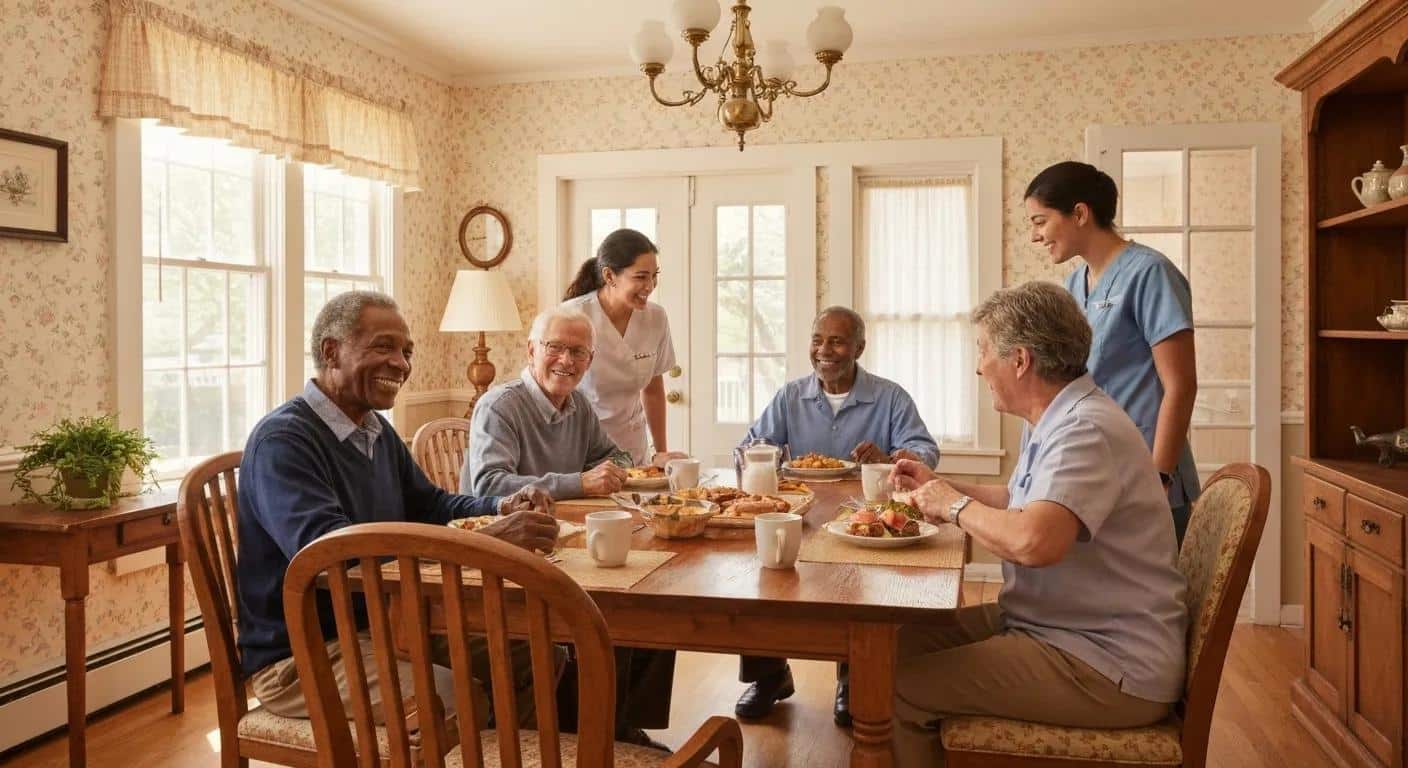
Memory Lane Home provides a true family atmosphere by limiting occupancy to six residents per home. This structure enables personalized attention, consistent caregiver assignments, and flexible routines shaped around individual habits. Care teams undergo specialized dementia training in behavior management, communication techniques, and the latest therapeutic interventions, ensuring each senior thrives in a familiar, nurturing environment.
How Do Six-Bedroom Residential Settings Benefit Alzheimer’s Residents?
Small residential homes foster intimate relationships among residents and caregivers. Shared meals around a common table promote social interaction, while private bedrooms ensure comfort and familiarity. Lower noise levels and home-style décor reduce sensory overload, decreasing confusion and agitation. This setting closely mirrors a private home, promoting emotional security and well-being.
What Safety and Security Measures Are Standard in Local Memory Care Homes?
- Secure entry and exit systems with coded access.
- Alarmed perimeter doors and motion sensors.
- Fall-proof flooring and grab bars in private and common areas.
- 24-hour video monitoring in hallways (privacy-focused).
- Emergency response pendants for every resident.
How Can Families Navigate Dementia Care Decisions Effectively?
Choosing a memory care community involves financial planning, evaluating support options, and matching facility features to resident needs.
What Is the Average Cost of Memory Care in Ann Arbor and Ypsilanti?
Memory care pricing in this region typically ranges from $5,000 to $8,500 per month, depending on accommodations, staff ratios, and included services. Memory Lane Home offers transparent all-inclusive pricing starting at $6,200, which covers room, board, personalized care plans, therapies, and activities—preventing unexpected fee increases as care needs evolve.
What Financial Assistance and Long-Term Care Insurance Options Are Available?
- Long-Term Care Insurance – Policies often cover memory care with pre-approved daily benefit amounts.
- Medicaid Waivers – State programs may subsidize dementia services for qualifying seniors.
- Veterans Benefits – Aid and Attendance pension supplements eligible veterans and spouses.
- Reverse Mortgages – Home equity conversion can fund care when other resources are limited.
How Does Respite Care Support Family Caregivers?
Respite care provides temporary relief for primary caregivers by offering short-term admissions—ranging from one day to several weeks. This service prevents caregiver burnout, supports emotional health, and allows families to attend to personal or professional obligations. Structured respite programs maintain consistent routines and therapies, ensuring residents continue to thrive even during brief stays.
What Should Families Consider When Choosing the Right Memory Care Facility?
When evaluating communities, families should assess:
- Staff training and caregiver-to-resident ratios
- Licensing, accreditation, and regulatory compliance
- Personalized care planning processes
- Therapeutic activity calendars and social engagement opportunities
- Transparent pricing structures and included services
- Safety protocols, secure environments, and emergency systems
- Resident and family testimonials highlighting real-world experiences
What Are the Signs That Indicate a Loved One Needs Memory Care Services?
Early recognition of memory impairment and behavioral changes allows timely intervention, improving outcomes and safety.
What Early Symptoms of Alzheimer’s and Dementia Should Families Watch For?
- Frequent word-finding difficulties and repeated questions
- Misplacing items and inability to retrace steps
- Sudden mood swings or apathy in previously social individuals
- Difficulty managing finances or following familiar recipes
- Impaired judgment leading to safety risks (e.g., stove left on)
How Does Dementia Progress and What Are Its Stages?
- Mild (Early) – Noticeable memory lapses, minor disorientation.
- Moderate (Middle) – Increased confusion, behavioral changes, assistance with daily tasks.
- Severe (Late) – Loss of communication ability, total dependence on caregivers.
How Is Technology Enhancing Alzheimer’s and Dementia Care in Memory Facilities?
Innovative tools are transforming safety, engagement, and cognitive support in modern memory care homes.
What AI-Driven Programs and Wearable Devices Support Cognitive Health?
AI-driven cognitive training platforms adapt exercises to each resident’s performance, promoting incremental improvement. Wearable devices with location tracking and vital-sign monitoring detect wandering risks and health anomalies, alerting caregivers in real time. Voice-activated assistants provide medication reminders and simple communications, helping residents maintain routines.
How Do Smart Home Features Improve Safety and Comfort for Residents?
- Automated lighting systems that reduce fall risk during nighttime movements
- Smart thermostats that maintain comfortable room temperatures with minimal resident input
- Voice-controlled door locks with caregiver override functions
- Sensor-based fall detection mats in key living areas
What Do Families and Residents Say About Their Experience in Memory Care?
Real-world feedback underscores the value of personalized, home-style memory care.
What Success Stories Highlight the Impact of Personalized Alzheimer’s Care?
One resident regained willingness to participate in daily music sessions after caregivers tailored playlists from her youth. Another family reports significant reductions in nightly sundowning behaviors following implementation of a structured evening routine and targeted cognitive exercises. These success stories demonstrate how customized interventions restore confidence and improve quality of life.
How Do Caregivers Describe Their Role in Supporting Seniors with Dementia?
Caregivers emphasize that building trusting relationships is key: “By learning each resident’s life story, I can anticipate needs before they arise,” one caregiver shares. Their specialized training in dementia communication and behavior management allows them to de-escalate agitation, foster meaningful connections, and celebrate moments of clarity and joy.
In visiting Memory Lane Home, families discover not only secure, expert Alzheimer’s care but also a nurturing community that honors each resident’s history and preferences. Personalized plans, high staffing levels, and innovative therapies combine to support dignity, safety, and engagement throughout every stage of dementia.
Frequently Asked Questions
What Are the Key Differences Between Memory Care and Assisted Living?
Memory care is specifically designed for individuals with Alzheimer’s and other dementias, focusing on their unique needs. Unlike general assisted living, memory care facilities provide specialized training for staff, structured routines, and therapeutic activities tailored to cognitive impairments. Security measures are also more stringent in memory care to prevent wandering and ensure safety. While both types of facilities offer assistance with daily living, memory care emphasizes cognitive support and emotional well-being for residents with memory-related challenges.
How Can Families Assess the Quality of Care in Memory Facilities?
Families can assess the quality of care in memory facilities by visiting in person and observing interactions between staff and residents. Look for signs of engagement, such as residents participating in activities and caregivers providing attentive support. Additionally, inquire about staff training, caregiver-to-resident ratios, and the facility’s approach to personalized care plans. Reading reviews and testimonials from current residents and their families can also provide valuable insights into the facility’s reputation and the quality of care provided.
What Should Families Know About End-of-Life Care in Memory Care Facilities?
End-of-life care in memory care facilities focuses on providing comfort and dignity to residents as they approach the final stages of life. Families should understand the facility’s policies on hospice care, pain management, and emotional support for both residents and their loved ones. Open communication with caregivers about the resident’s wishes and preferences is essential. Many facilities offer specialized training for staff in palliative care, ensuring that residents receive compassionate support during this sensitive time.
How Do Memory Care Facilities Support Family Involvement?
Memory care facilities encourage family involvement through regular communication and opportunities for participation in care planning. Families are often invited to join in activities, share insights about their loved ones, and attend support groups. Many facilities also host family events to foster community and connection. This involvement not only helps families stay informed about their loved one’s care but also strengthens the emotional bonds between residents and their families, enhancing the overall care experience.
What Are the Signs That a Memory Care Facility Is Right for Your Loved One?
Signs that a memory care facility is suitable for your loved one include a welcoming atmosphere, attentive staff, and a clear focus on individualized care. Look for facilities that prioritize safety and security while promoting independence. Positive interactions between staff and residents, as well as a variety of engaging activities, are also good indicators. Additionally, a transparent approach to care planning and open communication with families can signal a commitment to quality care and resident well-being.
What Resources Are Available for Families Navigating Memory Care Options?
Families navigating memory care options can access various resources, including local Alzheimer’s associations, support groups, and online directories of memory care facilities. Many organizations offer educational materials on dementia care, financial planning, and caregiver support. Additionally, consulting with healthcare professionals can provide personalized recommendations based on the specific needs of the individual. Utilizing these resources can help families make informed decisions and find the best memory care solutions for their loved ones.
Conclusion
Choosing the right memory care facility can profoundly improve the quality of life for seniors with Alzheimer’s, offering tailored support and a compassionate atmosphere. By understanding each resident’s unique needs, families can ensure that care plans foster safety, dignity, and engagement. We invite you to explore local options and evaluate facilities that align with your loved one’s requirements. Take the first step towards securing exceptional care by visiting Memory Lane Home today.
